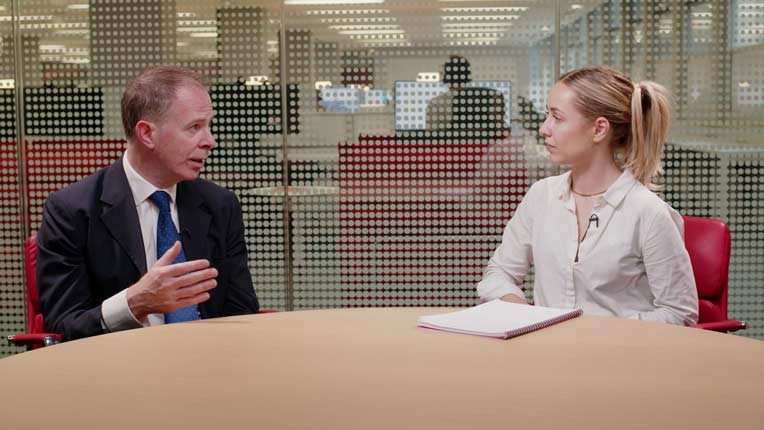The UK’s historic vote in favour of leaving the European Union has cast a shadow over UK-focused funds and investment trusts.
According to data from the Investment Association, the trade body for fund managers, investors withdrew £3.5 billion from UK funds during the month of June, eclipsing the £561 million that was withdrawn in January 2008.
Risk aversion towards UK equities following the ‘Brexit’ vote is also evident in the world of investment trusts. In the UK All Companies sector, the average discount to net asset value (NAV), which means the total value of assets held by an investment trust, was around 7% in early June. On 10 August it stood at 8.5%, according to Winterflood Securities.
For those seeking to diversify away from the UK market, is it time to back global equity investment trusts?
John Newlands, head of investment companies research at Brewin Dolphin, suggests so. He points out that a number of trusts with strong track records are currently trading at attractive discounts in the global sector.
“Global crises and conflicts come and go, but boring old global growth investment trusts have witnessed and weathered them all before. When they are slightly out of style is often a decent time to buy,” Newlands explained.
One example is Foreign & Colonial, managed by BMO Global Asset Management’s Paul Niven, which currently trades on a 10% discount. This compares to an average discount of 8% in the global sector.
Over the past three years, Foreign & Colonial has returned 43.6% in share price terms, while in NAV terms it is up 40.4%. This compares to a sector average return of 32%. Newlands suggests buying the trust and taking a minimum three to five-year view.
“For those of a more nervous disposition, defensive options might include Ruffer Investment Company, Personal Assets trust or the Battle Against Cancer Investment trust (Bacit),” he added.
James Maltin, an investment director at Rathbone Investment Management, urges investors to take a selective approach.
“When seeking opportunities in global equities, now is not the time to throw caution to the wind, but rather investors must be circumspect,” he noted.
He points out that global equities are trading well above their long-term averages. This is indicative of a world of loose monetary policy and unprecedented stimulus, which have inflated asset prices across the globe.
Nevertheless, selective investment opportunities remain. Scottish Mortgage represents his top global equity investment trust pick.
“The fund has performed well recently, the NAV having risen 26% during the last six months, while the MSCI World index has risen 21%, and the FTSE All Share a more modest 5%,” Maltin added.
Scottish Mortgage is a high conviction global equity portfolio, managed by James Anderson and Tom Slater, which is trading at a 0.12% discount to NAV.
The team targets high growth companies and take a long-term approach, particularly as they can invest up to 25% of the trust in unquoted companies. This allows them to back companies from an early stage, in some cases pre-IPO.
Over three years, Scottish Mortgage’s share price has risen 75.9% and the NAV return stands at 67%.
David Holder, a senior research analyst at Morningstar, also highlights Scottish Mortgage as a top pick. The trust has a Gold Morningstar Analyst Rating.
“There are lots of reasons to like it. It gives investors exposure to themes and stocks they would not ordinarily be able to invest in. It is not the type of portfolio you could readily replicate yourself,” Holder said.
This is because the trust has exposure to disruptive technology companies, like Airbnb, which in some cases the managers have backed from a relatively early stage. Investors should bear in mind that the portfolio is higher risk than other global trusts because it seeks exposure to high growth companies, unquoted stocks, and uses gearing.
For investors looking for a global trust that is lower risk, Holder suggests The Bankers Investment Trust.
“It is a core “Steady Eddie” high quality type of portfolio that should do investors well over the long-term, particularly for those who want to take income out of the portfolio,” he explained.
Holder highlights the trust’s 2.4% dividend yield, which is paid quarterly, alongside its ongoing charges figure of 0.52%, which he describes as “very reasonable” for an active core global equity portfolio. Bankers currently trades at an 8.5% discount and returned 26.1% over the past three years in share price terms, which compares to an NAV return of 34.3%.
In Holder’s opinion, there is always a case for allocating to global trusts, depending on an individual’s financial circumstances. In the wake of the Brexit vote, which has caused sterling weakness, it has understandably become more attractive to seek exposure to international companies with non-sterling denominated earnings.
This article was written by Danielle Levy, a freelance financial journalist, writing for Morningstar.co.uk




























